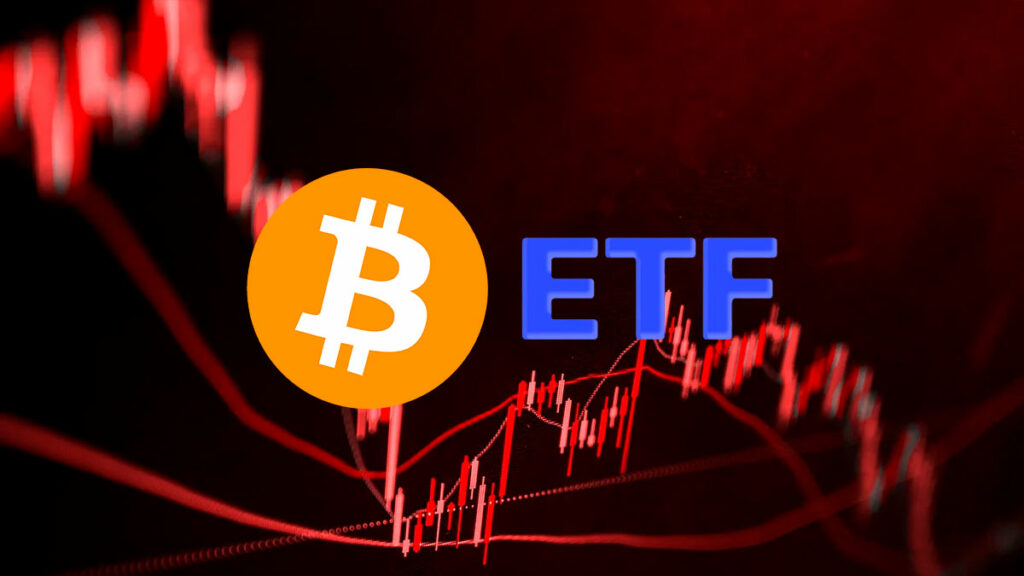TL;DR
- Significant Outflows: Four consecutive days of outflows from Spot Bitcoin ETFs, with $326 million leaving on April 8—BlackRock’s IBIT suffered its biggest daily drop since February.
- Macroeconomic Impact: The Bitcoin ETFs sell-off coincides with U.S. tariff announcements and market turbulence that saw Bitcoin slip below $75K after initially holding above $82K.
- Shifting Investor Sentiment: As institutional players de-risk amid rising macro uncertainty, Bitcoin’s evolving relationship with traditional finance raises questions about its long-term appeal as a safe asset.
Spot Bitcoin ETFs have recorded four consecutive days of outflows, with $326 million exiting the market on April 8. This marks the largest single-day withdrawal since March, signaling a shift in investor sentiment amid growing macroeconomic uncertainty.
BlackRock’s iShares Bitcoin Trust (IBIT) saw the steepest decline, with $252 million in redemptions—the fund’s biggest daily outflow since February. Other major ETFs, including Grayscale’s GBTC, Ark Invest’s ARKB, and Bitwise’s BITB, also experienced withdrawals, reflecting a broader trend of institutional risk aversion.
Trade Tensions and Market Volatility
The sell-off follows U.S. President Donald Trump’s announcement of new reciprocal import tariffs on April 2, which triggered a historic $5 trillion decline in the S&P 500 over two days.
While Bitcoin initially held above the $82,000 support level, it later plunged below $75,000 on April 6, mirroring the turbulence in traditional markets. Analysts suggest that Bitcoin’s 24/7 liquidity mechanics played a role in the weekend downturn as investors sought to de-risk their portfolios outside of standard trading hours.

Bitcoin’s Evolving Relationship with Traditional Finance
Despite the recent sell-off, Bitcoin’s correlation with traditional financial markets appears to be shifting. While equities suffered sharp losses, Bitcoin’s decline was less severe, dropping 6% compared to Nasdaq’s 11% decline.
Lennix Lai, global chief commercial officer at OKX, noted that Bitcoin’s resilience suggests a nuanced dynamic emerging between crypto and conventional assets. However, he cautioned that Bitcoin remains fundamentally tied to global liquidity conditions, making it vulnerable to broader economic stresses.
The Road Ahead
While Bitcoin ETFs have fueled much of the asset’s upside momentum in recent months, sustained outflows could weigh on market sentiment if macroeconomic pressures persist.
Some industry leaders believe Bitcoin’s growing conceptual influence could strengthen its role as a strategic reserve asset, particularly as investors seek alternatives to traditional financial instruments.
As institutional players reassess their exposure to Bitcoin ETFs, the evolving relationship between Bitcoin and global markets will be a key factor in shaping its future trajectory. Whether Bitcoin can maintain its appeal as a hedge against economic instability remains to be seen.










